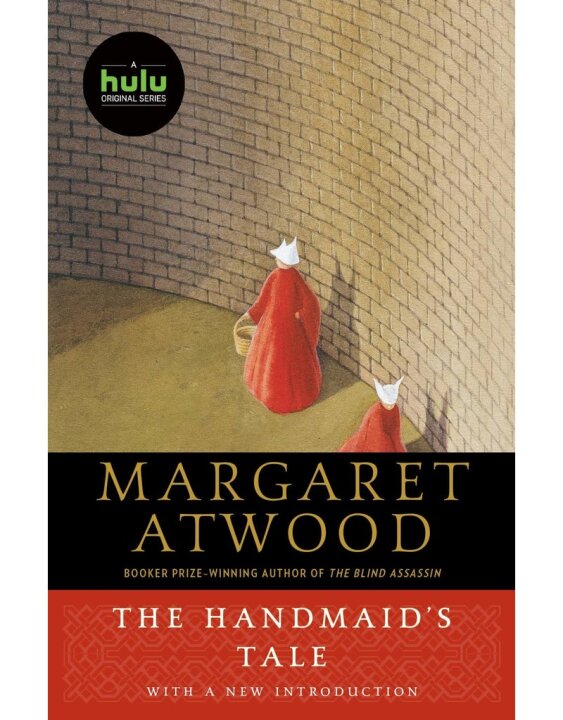@
redredred The democrats had full majorities in both houses and the presidency during both Clinton and Obama and yet they never introduced legislation to legalize abortion federally. That is their cowardice because Ginsberg warned them that Roe was on shaky ground constitutionally. Blame them.
@Kwek00 No it didn’t. The court ruled that it was constitutional but failed to cite an actual basis for it. Ruth Bader Ginsberg herself said so.
I've been looking for this ever since you wrote it down... But this is another one of the slogans and memes you picked up on the right-wing platforms. You know, yet another bit of information that was put out there so that uncritical ignorant parrots can keep spewing it around everywhere, so that it starts leading it's own life. Because I can't substaniate it anywhere?.
What she actually argued is that the court should have striked down the Texas law in question on constitutional grounds. But that it shouldn't have expanded it's descision beyond that and let the forces in society ride their course. Which she hoped would end up in a legal framework by the legeslative branch:
The seven to two judgment in Roe v. Wade declared “violative of the Due Process Clause of the Fourteenth Amendment” a Texas criminal abortion statute that intolerably shackled a woman’s autonomy; the Texas law “except[ed] from criminality only a life-saving procedure on behalf of the [pregnant woman].” Suppose the Court had stopped there, rightly declaring unconstitutional the most extreme brand of law in the nation, and had not gone on, as the Court did in Roe, to fashion a regime blanketing the subject, a set of rules that displaced virtually every state law then in force. Would there have been the twenty-year controversy we have witnessed, reflected most recently in the Supreme Court’s splintered decision in Planned Parenthood v. Casey? A less encompassing Roe, one that merely struck down the extreme Texas law and went no further on that day, I believe and will summarize why, might have served to reduce rather than to fuel controversy.
She goes on saying:
Roe v. Wade, [...], invited no dialogue with legislators. Instead, it seemed entirely to remove the ball from the legislators' court. In 1973, when Roe issued, abortion law was in a state of change across the nation. As the Supreme Court itself noted, there was a marked trend in state legislatures "toward liberalization of abortion statutes."' That
movement for legislative change ran parallel to another law revision effort then underway-the change from fault to no-fault divorce regimes, a reform that swept through the state legislatures and captured all of them by the mid-1980s.
No measured motion, the Roe decision left virtually no state with laws fully conformhrfg to the Court's delineation of abortion regulation still permissible. Around that extraordinary decision, a well-organized and vocal right-to-life movement rallied and succeeded, for a considerable time, in turning the legislative tide in the opposite direction.
SOURCE: http://www.law.nyu.edu/sites/default/files/ECM_PRO_059254.pdf
Something she seems to be extremely consistent with... considering that during her public hearing for office of the supreme court she said:
Senator Howard Metzenbaum: Judge Ginsburg I’ve always believed it’s important that the men and women who serve on the court have a good sense of the reality that litigants face and the practical implications of their decisions. I expect that your broad range of professional and personal experiences would give you an understanding of the world faced by the individuals who are before the court. Having said that, I’m Frank to say that I’m puzzled by your often repeated criticisms of the decision in Roe V. Wade, that the court went too far and too fast. You stated the decision need only have invalidated the Texas abortion law in question. You’ve also stated that [inaudible 01:35:27] a trend towards liberalization of state abortion statutes. I’m frank to say that some, including the Senator, would question whether women really were making real progress towards obtaining reproductive freedom, when Roe was decided in 1973. Would you be willing to explain your basis for making those statements about Roe and the state of abortion law, at the time of the Roe decision?
Ruth Bader Ginsburg: Yes, Senator Metzenbaum, I will try. The statement that you made about the law moving in a reform direction is taken the law, moving in a reform direction is taken directly from Justice Blackmun’s decision in Roe itself, where he said, “But until recently, the law had been almost solidly like the Texas law, but that there had been a trend in the direction of reform to the extent that some one third of the states, in a span of a very few years, had reformed their abortion laws from the point where only the life of the woman was protected, to a few years later, some years later, one third of the state’s moving from that position to a variety of positions, most of them following something on the order of the American Law Institute model, which was grounds rape, incest, and some other grounds, four states having by then moved to permit abortion on the woman’s request as advised by her doctor. So I took that statement, not from any source other than the very opinion, which I am hardly criticizing for making that point. I accepted justice that was made in Roe v. Wade.
When questioned further on her criticism, she goes on in a consistent way:
Ruth Bader Ginsburg: The one thing that one can say for sure, there was a massive attack on Roe v. Wade, it was a single target to hit that. I think two things happened. One is that a movement that had been very big risk became relaxed, slightly relaxed. Didn’t Tylee go home? But it wasn’t as vigorous as it had been, or that it might have been, were it not that the court seemed to have taken care of the problem. So one thing is, one side seemed to relax its energy while the other side had a single target around which to rally. But that’s my, what if? And I could be wrong about that. My view was that the people would have accepted, would have expressed themselves in an enduring way on this question. And as I said, this is a matter of speculation, this is my view of, what if? Other people can have a different view.
In Roe case, the Supreme Court held that a woman’s right to terminate a pregnancy was protected by the constitution. Court said that constitutional right was fundamental and deserve the highest standard of protection of government laws and regulations that interfere with the exercise of the right. States had to have a compelling state interest to regulate the right to choose. In Planned Parenthood of Southeastern Pennsylvania v. Casey, the court did not overrule Roe v. Wade. However, the court in Casey lowered the standard for protecting a woman’s right to choose. Court held that states may regulate the right to choose as long as they do not create an undue burden on women. After the Casey decision, some have questioned whether the right to choose is still a fundamental constitutional right. In your view, does the Casey decision stand for the proposition that the right to choose is a fundamental constitutional right?
The Court itself has said, after Casey, and I don’t want to misrepresent the Supreme Court, so I’ll just read. It’s on Word. This is a majority of the Supreme Court, including the dissenters in Casey, ” The right to abortion is one element of a more general right of privacy,” citing Roe v. Wade, “or of Fourteenth Amendment liberty.” That’s the court’s most recent statement, that abortion is part of the concept of privacy or liberty under the Fourteenth Amendment
Now, what regulations will be permitted is certainly a question that is going to be before this court. And that depends in part, Senator, on the kind of record that’s presented to the court. And I don’t feel that it would be appropriate for me to go beyond the point of repeating what the court has said. Majority of the court has said that this is a right of a woman guaranteeing by the Fourteenth Amendment, part of the liberty guaranteed by the Fourteenth Amendment.
Well, perhaps I can say one thing more. There is an adjustment that we have seen since Roe to Casey. The Roe decision is a highly medically oriented decision, not just in the three trimester division, but if you read that opinion, you will see that it is almost as much about the right of the doctor to freely exercise his profession. The woman appears together with her consulting physician, and that pairing comes up two, three times in the opinion, the woman, as together with her consulting physician. Casey decision, at least the decision of three of the justices in that case, makes it very clear that the woman is central to this. She is now standing alone. This is her right. It’s not her right in combination with her consulting decision, but the centrality of this decision, the case poses the question, who decides, is it the state or the individual? And in Roe, that answer comes out the individual in consultation with her physician, there is a somewhat of a big brother figure next to the woman. I think that the most recent decision, whatever else might be said about it, says the woman decides.
She did think that you can find the right to abortion in the constitution. She even points it out, as a republican senator notices in the hearings:
Senator Orin Hatch: [...] Now, one of the things I admired about your criticism of Roe versus Wade is at least you would put a constitutional underpinning under it by using the equal protection clause, rather than just conjure something out of thin air to justify what was done. And at least that would be a constitutional approach towards it.
SOURCE: https://www.rev.com/blog/transcripts/justice-ruth-bader-ginsburg-confirmation-hearing-transcript-1993
This is something she also has been argueing, and was also adressed in the senate hearings:
First, that the applicable Air Force regulations — if you are pregnant you are out unless you have an abortion — violated the equal protection principle, for no man was ordered out of service because he had been the partner in a conception, no man was ordered out of service because he was about to become a father.
Next, then we said that the Government is impeding, without cause, a woman’s choice whether to bear or not to bear a child. Birth was Captain Struck’s personal choice, and the interference with it was a violation of her liberty, her freedom to choose, guaranteed by the due process clause.
Finally, we said the Air Force was involved in an unnecessary interference with Captain Struck’s religious belief.
So all three strands were involved in Captain Struck’s case. The main emphasis was on her equality as a woman vis-à-vis a man who was equally responsible for the conception, and on her personal choice, which the Government said she could not have unless she gave up her career in the service.
In that case, all three strands were involved: her equality right, her right to decide for herself whether she was going to bear the child, and her religious belief. So it was never an either/or matter, one rather than the other. It was always recognition that one thing that conspicuously distinguishes women from men is that only women become pregnant; and if you subject a woman to disadvantageous treatment on the basis of her pregnant status, which was what was happening to Captain Struck, you would be denying her equal treatment under the law…
The decision whether or not to bear a child is central to a woman’s life, to her well-being and dignity. It is a decision she must make for herself. When Government controls that decision for her, she is being treated as less than a fully adult human responsible for her own choices.
Earlier on in that same hearing she also explained what the right to privacy means to her:
There is a constitutional right to privacy composed of at least two distinguishable parts. One is the privacy expressed most vividly in the fourth amendment: The Government shall not break into my home or my office without a warrant, based on probable cause; the Government shall leave me alone. The other is the notion of personal autonomy. The Government shall not make my decisions for me. I shall make, as an individual, uncontrolled by my Government, basic decisions that affect my life's course. Yes, I think that what has been placed under the label privacy is a constitutional right that has those two elements, the right to be let alone and the right to make basic decisions about one's life's course.
[...]
The Government must have a good reason, if it is going to intrude on one's privacy or autonomy. The fourth amendment expresses it well with respect to the privacy of one's home. The Government should respect the autonomy of the individual, unless there is reason tied to the community's health or safety. We live in communities and I must respect the health and wellbeing of others. So if I am not going to accord that respect on my own, the Government appropriately requires me to recognize that I live in a community with others and can't push my own decisionmaking to the point where it would intrude on the autonomy of others
SOURCE: https://www.govinfo.gov/content/pkg/GPO-CHRG-GINSBURG/pdf/GPO-CHRG-GINSBURG.pdf
So... her criticism was NOT that the right to an abortion couldn't be found in the constitution. Neither was it that that it couldn't be found in the 14th amendment, because the "equal protection clause" false under the 14th amendment.
Her issues were that the "Roe vs Wade" ruling stopped the political process and stopped the movement for womens emancipation. And that expanding the rulling to something more then what was asked, namely: the striking down of the law in Texas, was a mistake because it let to a point where legeslators weren't searching to advance more legeslation surrounding the toppic. Which eventually lead to a bunch of christian authoritarians striking down a ruling that has been part of US framework for amlost 50 years.
But to figure all that out... you need to go past memes and slogans and read up on stuff.


































